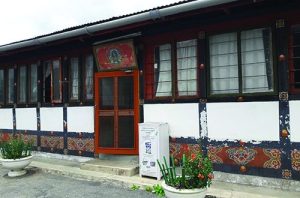People earn from Nu 150,000 to Nu 1.2mn per month as remote workers based on their experience
Remote working is gaining popularity in the country, especially in the tech field, with many new recruits in the computer programming field officially resigning from their works and staying home to work for the companies based in the US and Europe.
Remote work or remote working is the practice of employees doing their jobs from a location other than a central office operated by the employer, and such locations could include an employee’s home, a co-working or other shared space, a private office, or any other place outside of the traditional corporate office building or campus.
The Secure Link Services (SELISE) Bhutan Private Limited, which is a 100% Swiss FDI Company and located at the Thimphu Tech Park, has around six of their ex-colleagues working remotely for some European or American companies.
The country manager of SELISE Bhutan, Kesang Wangchuk said that many of the employees working under the SELISE are doing remote jobs for companies based in the US and Europe.
“Officially, some have resigned from SELISE with the stated intention of taking up remote jobs,” he said, adding that the salary is the leading factor for people taking up remote working.
“A remote employee could earn anywhere from USD100 – USD 15,000 per month. These types of salary cannot be matched by companies here as we need to consider overhead cost, team cost, taxes, benefits, and also retain liquid cash in case of an unforeseen circumstance,” he said.
Meanwhile, SELISE is a software company which trains people and hires them in the field of coding, and developing and designing apps.
“While in the duration of working at the SELISE, employees are gaining better opportunities for remote working for companies based in third countries, which pays better and equip them with a lot of knowledge,” Kesang Wangchuk said.
A frontend developer, who wished to remain anonymous, said he had quit to work from SELISE to work from home as a full time frontend developer for a software and design company based in the US.
“I left SELISE for better opportunities after working for almost three years. And in these years, I acquired skills that were in demand in the markets such as the development of web and app,” he said.
With the experience gained, he said he is confident to tackle any obstacles in regards to programming.
Even for him, the salary or payment the work offered was the main reason to work full time as a remote worker.
“The payment is on hourly basis and the more hours you put in, the higher your payment,” he said, adding that he earns roughly between Nu 150,000 to Nu 400,000 per month.
“However, it also depends on the types of the roles and positions that you apply for. There are opportunities for highly skilled personnel to even earn around Nu 750,000 to Nu 1,2mn per month,” the remote worker said.
While talking about the nature of his work, he said as he is a frontend developer and currently uses React and React-Native for his work.
“Basically I deal with the user’s interaction with the software. For instance, what and how do you see things on the screen? What would happen if you click a button on the screen? What happens when you scroll and so on,” he said.
Another former employee of SELISE, who is also a full time remote worker now, Manish Sharma said, “I had a strong CV and maintained a LinkedIn profile where I started connecting with people on LinkedIn and randomly browsed through the job vacancies posted. I even looked through online job portals that were recruiting remote developers. Then I just applied to the companies that could use the skills I possessed. That’s how I came across a remote job.”
He said that the reason for quitting his earlier job was because of the income too.
“However, there is also a huge difference in work discipline and culture. The quality of the products is superior. The response time to fix an issue after it is raised is also limited,” he said.
According to Kesang Wangchuk, some of the works in the tech field which Bhutanese are taking up include work as a full time stack developer, react frontend developer, angular frontend developer, Ruby on blackened developers, React-native FE developers, flutter FE developers, quality Assurance tester, business analyst and UI/UX designing.
“There are several ways to find a remote job like referral by someone who knows you, head-hunting by an overseas recruiter, job platforms like LinkedIn, Turing, Upwork etc. The most important thing is your skillset. As long as you have skills, there will always be companies lining up to take you,” Kesang Wangchuk said.
Meanwhile, remote jobs and the rise of remote employees, which is a global phenomenon, has been further accelerated by the COVID-19 pandemic. While it was rare a decade ago and working from home was usually only available as a special arrangement to accommodate families in specific cases, the Covid crisis created a sudden need for businesses and their employees to start working from their homes.
Tshering Pelden from Thimphu















